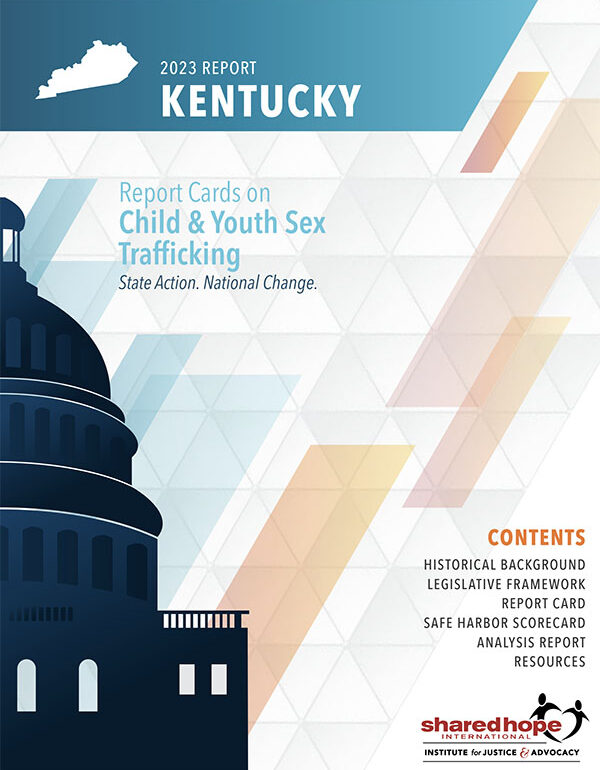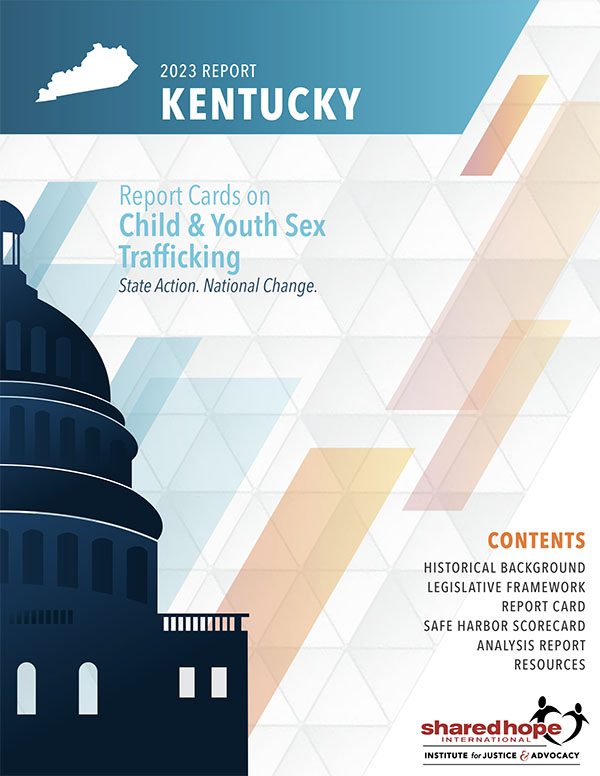By Tessa Redmond
Kentucky Today
Despite a dismal ‘D’ Report Card, Kentucky ranks in the top tier of all states for laws protecting and responding to young trafficking survivors. That’s according to Shared Hope International, a national nonprofit with a mission to prevent conditions that foster sex trafficking.
The 2023 Report Cards, used by Shared Hope to press for a national standard of victim-centered justice, are the result of analysis and assessment of each state’s legal responses to child and youth sex trafficking. Only statutes are evaluated.
Kentucky tied for 10th nationally. Shared Hope gave 32 states an ‘F’ grade, while Tennessee (A), Florida (B), Minnesota (C), California (C) and Washington (C) rounded out the top five.
“We applaud the progress that states have made in recent years,” said former U.S. Congresswoman and Shared Hope founder and president Linda Smith.
“At the same time, many states continue to struggle in their legislative efforts. This creates a wild patchwork of statutes across the country, with the number and quality of legal protections and responses literally all over the map. Regardless of state of residence, no minor should be punished for their own trafficking victimization. Instead, these minors deserve critical services and care.”
Key findings for Kentucky include:
• Between 2021 and 2023, the state raised its score by 6 points.
• Child welfare and juvenile justice agencies are required to screen system-involved youth for experiences or risk factors for sex trafficking victimization.
• Allows child and youth victims of sex or labor trafficking to seek accountability for their offenders through civil processes.
• Status of the state’s Safe Harbor laws: One of 30 states that statutorily prohibit the criminalization of minors under the core prostitution offense.
Shared Hope has six policy goals, and Kentucky was scored individually for each issue.
1. Criminal provisions: ‘C’
2. Identification of and response to victims: ‘D’
3. Continuum of care: ‘F’
4. Access to justice for trafficking survivors: ‘C’
5. Tools for a victim-centered criminal justice response: ‘D’
6. Prevention and training: ‘F’
A summary of Kentucky law found the commonwealth prohibits criminalizing minors for prostitution and prostitution-related offenses and extends non-criminalization protections to child sex trafficking victims for status offenses resulting from their victimization. Child sex trafficking victims may still be prosecuted for other offenses committed as a result of their victimization; state law also does not facilitate access to or provide funding for community-based services.
The Report Card also provided recommendations for addressing gaps in Kentucky’s statues. The full analysis and report card can be found at reportcards.sharedhope.org.
This post was originally published on this site be sure to check out more of their content.










